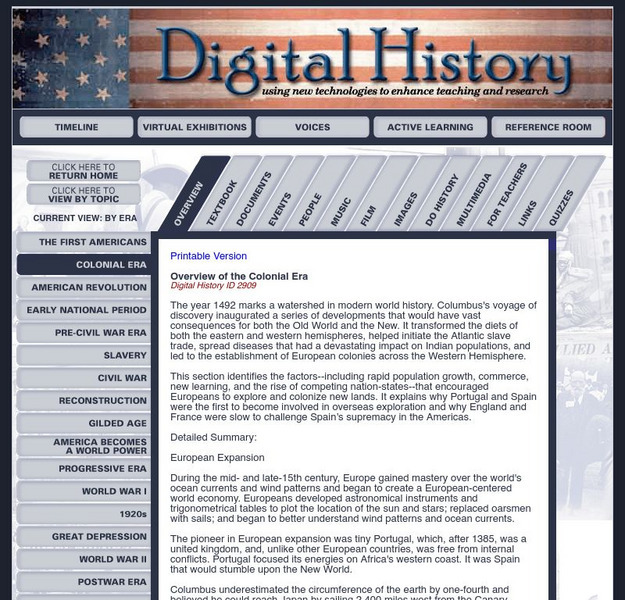The year 1492 marks a watershed in modern world history. Columbus's voyage of discovery inaugurated a series of developments that would have vast consequences for both the Old World and the New. It transformed the diets of both the eastern and western hemispheres, helped initiate the Atlantic slave trade, spread diseases that had a devastating impact on Indian populations, and led to the establishment of European colonies across the Western Hemisphere. This section identifies the factors--including rapid population growth, commerce, new learning, and the rise of competing nation-states--that encouraged Europeans to explore and colonize new lands. It explains why Portugal and Spain were the first to become involved in overseas exploration and why England and France were slow to challenge Spain's supremacy in the Americas.
Additional Tags
Classroom Considerations
- Knovation Readability Score: 5 (1 low difficulty, 5 high difficulty)
- This resource is only available on an unencrypted HTTP website.It should be fine for general use, but don’t use it to share any personally identifiable information

